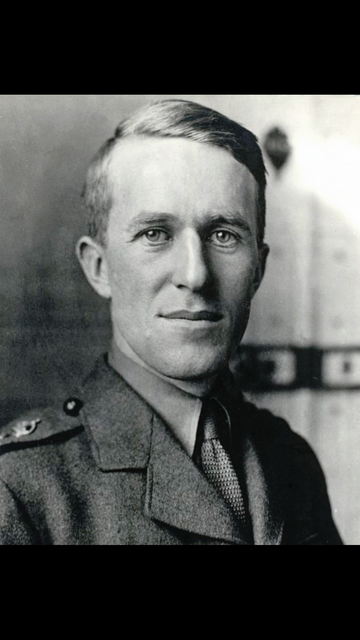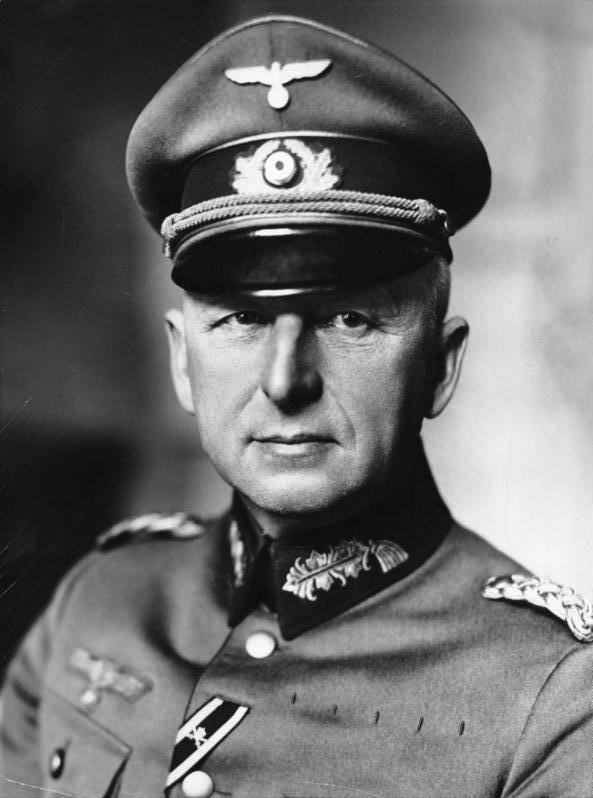Post by CountVonNumenor on Aug 27, 2018 15:21:27 GMT
In this topic, I would like everyone to choose ine or more generals of The Great War from their own contry, ans show their story, especially during the war and in the years that followed. A bit of background information is akso goid, especially if they were already veterans of other wars.
More countries' generals we get, more information for everyone. I will be first, coming with examples from Romania:

Alexandru Avererescu (3rd of April 1859 – 2nd of October 1938) was a Romanian marshal and populist politician. A Romanian Armed Forces Commander during World War I, he served as Prime Minister of three separate cabinets (as well as being interim Foreign Minister in January–March 1918 and Minister without portfolio in 1938). He first rose to prominence during the peasants' revolt of 1907, which he helped repress in violence. Credited with engineering the defense of Moldavia in the 1916–1917 Campaign, he built on his popularity to found and lead the successful People's Party, which he brought to power in 1920–1921, with backing from King Ferdinand I and the National Liberal Party (PNL), and with the notable participation of Constantin Argetoianu and Take Ionescu. His controversial first mandate, marked by a political crisis and oscillating support from the PNL's leader Ion I. C. Brătianu, played a part in legislating land reform and repressed communist activities, before being brought down by the rally of opposition forces. His second term of 1926–1927 brought a much-debated treaty with Fascist Italy, and fell after Averescu gave clandestine backing to the ousted Prince Carol. Faced with the People Party's decline, Averescu closed deals with various right-wing forces and was instrumental in bringing Carol back to the throne in 1930. Relations between the two soured over the following years, and Averescu clashed with his fellow party member Octavian Goga over the king's attitudes. Shortly before his death, he and Carol reconciled, and Averescu joined the Crown Council. Averescu, who authored over 12 works on various military topics (including his memoirs from the frontline), was also an honorary member of the Romanian Academy and an Order of Michael the Brave recipient. He became a Marshal of Romania in 1930.

Constantin Prezan (January 27, 1861 – August 27, 1943) was a Romanian general during World War I and a Marshal of Romania afterward. Born in Butimanu, Dâmbovița County, Prezan graduated from the officers' infantry and cavalry school in Bucharest and the École spéciale militaire de Saint-Cyr. Made a second lieutenant in 1880, he rose to captain in 1887. A military engineering specialist, he took part in the Second Balkan War. General Prezan commanded the 4th Army Corps in 1915-1916, and then became head of the Romanian Fourth Army during the Romanian Campaign later in 1916. Prezan led the Romanian Armed Forces as it retreated into the northeastern part of Romania (Moldavia), and also in the Battle of Bucharest (November 1916). In July and August 1917, Prezan, who was by then Chief of the General Staff (and assisted by the then-Lieutenant-Colonel Ion Antonescu) successfully stopped the German invasion led by Field Marshal August von Mackensen. He continued serving in this position until 1920. Documents found in military archives have brought to light Prezan's role in creating the Romanian National State. During the campaign of 1916, Prezan was rewarded with the Mihai Viteazu Order, Third Class for deeds of merit, courage, and devotion. In the summer of 1917, when he commanded the General Army Quarters, Prezan was honoured with Mihai Viteazu Order, Second Class. During the Hungarian–Romanian War (November 1918- March 1920), Prezan led the Romanian Armed Forces in the battles of Bessarabia, Bukovina, and Transylvania. King Ferdinand awarded his outstanding service with the Mihai Viteazu Order, First Class. Prezan was promoted as Marshal of Romania in 1930.

Eremia Grigorescu (28 November 1863 – 21 July 1919) was a Romanian artillery General during World War I, and Minister of War in the Constantin Coandă cabinet (October–November 1918). Born in the village Golăşei (Bujor Sat) near Târgu Bujor, in Covurlui County, now Galaţi county, Grigorescu studied at the Bucharest officers' and artillery applications school, and later in France, at the Sorbonne. He also attended special artillery and administration courses at the French Ministry of War. In 1917, during the Romanian Campaign, Grigorescu was the commander of the Romanian armies in the Battle of Mărăşeşti. It was there that he achieved his greatest success, managing to defeat Imperial German troops led by General August von Mackensen. After the battle, Grigorescu was nicknamed the "hero of Mărăşeşti". His victory was praised in Entente countries, and earned the general a sword sent to him by Yoshihito, the Emperor of Japan. He was also a recipient of the Order of Michael the Brave.
More countries' generals we get, more information for everyone. I will be first, coming with examples from Romania:

Alexandru Avererescu (3rd of April 1859 – 2nd of October 1938) was a Romanian marshal and populist politician. A Romanian Armed Forces Commander during World War I, he served as Prime Minister of three separate cabinets (as well as being interim Foreign Minister in January–March 1918 and Minister without portfolio in 1938). He first rose to prominence during the peasants' revolt of 1907, which he helped repress in violence. Credited with engineering the defense of Moldavia in the 1916–1917 Campaign, he built on his popularity to found and lead the successful People's Party, which he brought to power in 1920–1921, with backing from King Ferdinand I and the National Liberal Party (PNL), and with the notable participation of Constantin Argetoianu and Take Ionescu. His controversial first mandate, marked by a political crisis and oscillating support from the PNL's leader Ion I. C. Brătianu, played a part in legislating land reform and repressed communist activities, before being brought down by the rally of opposition forces. His second term of 1926–1927 brought a much-debated treaty with Fascist Italy, and fell after Averescu gave clandestine backing to the ousted Prince Carol. Faced with the People Party's decline, Averescu closed deals with various right-wing forces and was instrumental in bringing Carol back to the throne in 1930. Relations between the two soured over the following years, and Averescu clashed with his fellow party member Octavian Goga over the king's attitudes. Shortly before his death, he and Carol reconciled, and Averescu joined the Crown Council. Averescu, who authored over 12 works on various military topics (including his memoirs from the frontline), was also an honorary member of the Romanian Academy and an Order of Michael the Brave recipient. He became a Marshal of Romania in 1930.

Constantin Prezan (January 27, 1861 – August 27, 1943) was a Romanian general during World War I and a Marshal of Romania afterward. Born in Butimanu, Dâmbovița County, Prezan graduated from the officers' infantry and cavalry school in Bucharest and the École spéciale militaire de Saint-Cyr. Made a second lieutenant in 1880, he rose to captain in 1887. A military engineering specialist, he took part in the Second Balkan War. General Prezan commanded the 4th Army Corps in 1915-1916, and then became head of the Romanian Fourth Army during the Romanian Campaign later in 1916. Prezan led the Romanian Armed Forces as it retreated into the northeastern part of Romania (Moldavia), and also in the Battle of Bucharest (November 1916). In July and August 1917, Prezan, who was by then Chief of the General Staff (and assisted by the then-Lieutenant-Colonel Ion Antonescu) successfully stopped the German invasion led by Field Marshal August von Mackensen. He continued serving in this position until 1920. Documents found in military archives have brought to light Prezan's role in creating the Romanian National State. During the campaign of 1916, Prezan was rewarded with the Mihai Viteazu Order, Third Class for deeds of merit, courage, and devotion. In the summer of 1917, when he commanded the General Army Quarters, Prezan was honoured with Mihai Viteazu Order, Second Class. During the Hungarian–Romanian War (November 1918- March 1920), Prezan led the Romanian Armed Forces in the battles of Bessarabia, Bukovina, and Transylvania. King Ferdinand awarded his outstanding service with the Mihai Viteazu Order, First Class. Prezan was promoted as Marshal of Romania in 1930.

Eremia Grigorescu (28 November 1863 – 21 July 1919) was a Romanian artillery General during World War I, and Minister of War in the Constantin Coandă cabinet (October–November 1918). Born in the village Golăşei (Bujor Sat) near Târgu Bujor, in Covurlui County, now Galaţi county, Grigorescu studied at the Bucharest officers' and artillery applications school, and later in France, at the Sorbonne. He also attended special artillery and administration courses at the French Ministry of War. In 1917, during the Romanian Campaign, Grigorescu was the commander of the Romanian armies in the Battle of Mărăşeşti. It was there that he achieved his greatest success, managing to defeat Imperial German troops led by General August von Mackensen. After the battle, Grigorescu was nicknamed the "hero of Mărăşeşti". His victory was praised in Entente countries, and earned the general a sword sent to him by Yoshihito, the Emperor of Japan. He was also a recipient of the Order of Michael the Brave.







